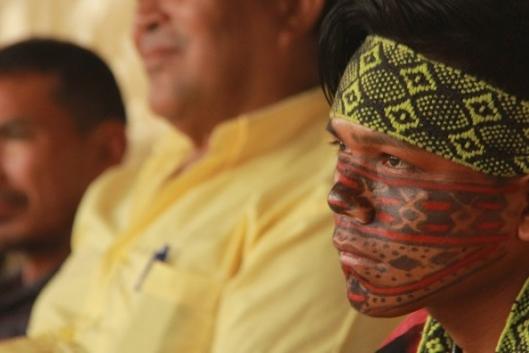A compilation of articles from the World Rainforest Movement Bulletin on the occasion of the Global Climate Action Summit to be held 12-14 September, in California, United States
The state of California in the US has been seeking to integrate other jurisdictions into its state carbon market programme, now extended until 2030. The first thing to note about California’s emission reductions targets is that they are extremely low. And these low targets are further undermined with the use of a carbon market. Among several other corporate giveaways, companies are allowed to ‘compensate’ for their excess pollution without making emission reductions on site. As a result, polluters can keep polluting while vulnerable communities affected by their operations continue suffering aggravated impacts. It is important to recall that major polluters in California –refineries and power plants- are concentrated in communities of colour and low-income communities. Furthermore, California’s carbon market keeps its door open to international forest carbon credits.
The Governors’ Climate and Forests Task Force
During the 2008 UN climate negotiations, the Governors’ Climate and Forests Task Force (GCT) was launched. The GCT seeks to integrate REDD+ into the mandatory regional carbon market regimes in the United States, such as that of California.
In 2010, the government of Acre created the Environmental Services Incentives System (SISA, Sistema de Incentivos aos Serviços Ambientais) with the goal of fostering the maintenance and expansion of the "supply of ecosystem services and products" in the state. It is considered globally the most advanced Jurisdictional REDD+ program that exists. While the government of Acre tries to misleadingly associate the image of the internationally renowned rubber tapper leader Chico Mendes to its REDD+ program, communities in Acre, on the other hand, keep honouring his ideas. 30 years ago, in December 1988, Chico Mendes was killed in the town of Xapuri for defending the rubber tapper’s rights to the forest.
Almost in parallel, the state of Chiapas in Mexico began to develop the Climate Change Action Program in 2009 to give priority to the implementation of Jurisdictional REDD+. The state was already in the process of implementing REDD+ programs in the Lacandon Forest, a territory where indigenous peoples' communities live. The area also has a long history of social conflicts and struggles, including the widely known Zapatista movement, which keeps fighting for their autonomy and self-determination.
In 2010, the state governments of California, Acre, and Chiapas signed a Memorandum of Understanding on Environmental Cooperation with the goal of creating a REDD+ carbon credit system between the three jurisdictions. The system would channel REDD+ funding into Acre and Chiapas, in exchange of compensation or offset credits for polluters in the state of California. REDD+ credits would allow pollution in California to continue.
Until now, the Governors’ Climate and Forests Task Force (GCT) has not gone beyond discussions, conferences and consultancy papers. However, this process could advance during the Global Climate Summit to be held in San Francisco, in September 2018, as the GCT annual meeting is scheduled to take place just before the Summit.
Table of Contents
- Introduction
- Compilation of WRM Bulletin articles
- From REDD+ projects to ‘jurisdictional REDD+’: more bad news for the climate and communities
- REDD+ in the Paris Agreement secures funding for conservation industry while large-scale deforestation advances unhindered
- REDD and rights: The good, the bad and the ugly
- Brazil - Envira REDD+ project in Acre: Gold certificate from carbon certifiers for empty promises
- REDD Alert! How REDD+ projects undermine peasant farming and real solutions to climate change
- What is the biggest REDD+ contradiction?
- REDD+ myth: Sustainable Forest Management
- Resistance against the proposals to allow international forest offsets in the California carbon market, some examples
- Declaration from Sena Madureira (June 2018)
- Indigenous Peoples from Acre declare their rejection to REDD policies and their support to the local organization CIMI (September 2017)
- Motion of rejection and solidarity with leaders facing threats in Acre (August 2017)
- Xapuri Declaration (Acre, May 2017)
- Open letter from Acre challenges legitimacy of REDD+ “consultation” in California (April 2013)
- Further readings
